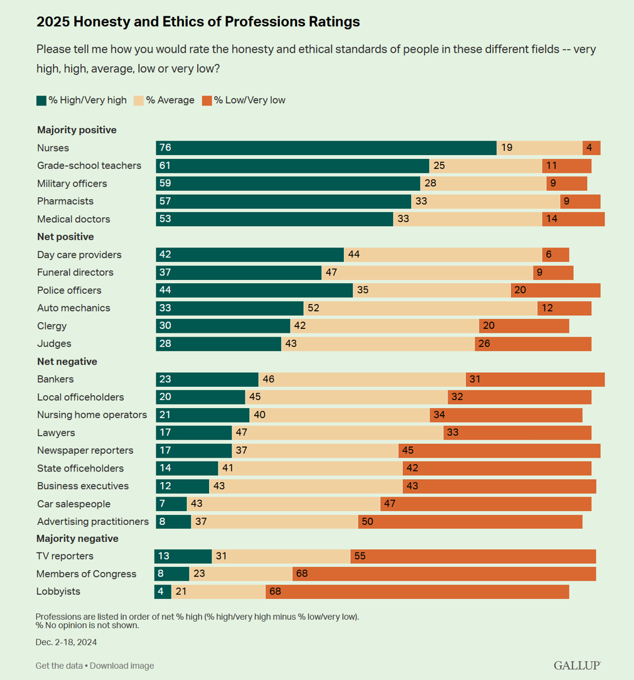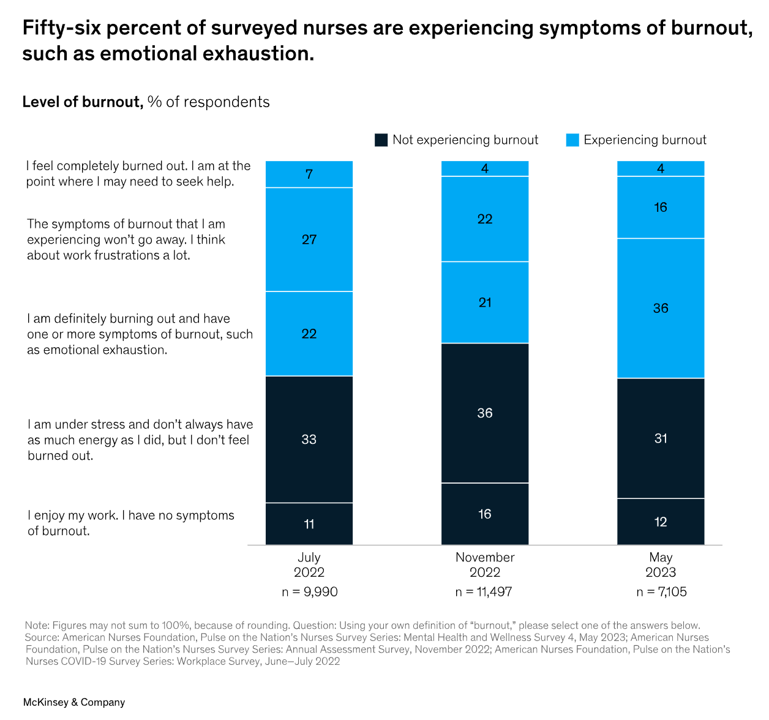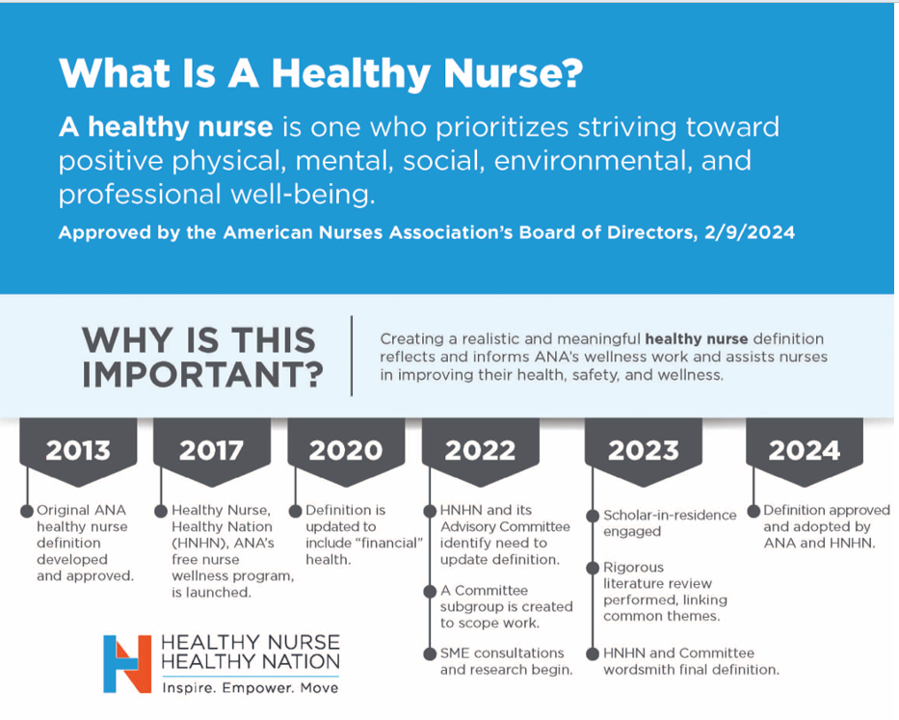While nursing has ranked top of U.S. professions for honesty and ethics for over a decade, U.S. adults speak even more assuredly in 2025 that nurses far outrank other professions in America. according to the latest Gallup Poll.
The study summary report is titled, “Americans’ Ratings of U.S. Professions Stay Historically Low.”

The data speak for itself — in 2025, the margin of people who put nurses on top of all other professions in America is much wider than in past years — and physicians have fallen further down the rankings.
78% of U.S. adults ranked nurses high or very high in the study, followed by 61% of people giving grade-school teachers a high/very high mark. That 15 point difference is historically among the largest gaps between 1st and 2nd place in this study.
Physicians have historically ranked second or third for the past decade in this Gallup survey — but in 2025, doctors have fallen to NTH place below teachers, military officers, and pharmacists.

Gallup’s headline in this year’s study is that trust has peaked overall in U.S. institutions (reflected in declining trust in most professions) over the two decades+ the company has conducted this research. The line chart illustrates falling faith in honesty and ethics for 11 “core professions” studied over 20+ years which include nurses, pharmacists, medical doctors, police officers, clergy, bankers, lawyers, business executives, members of Congress, advertising practitioners and car salespeople.
Trust “rose slightly in 2020, to a seven-year high of 38%,” Gallup notes, “reflecting enhanced public trust in healthcare workers and teachers during the pandemic. Thereafter, the average declined each year through 2023, when it reached 30%, and it held there in 2024. This mirrors the long-term decline in Americans’ confidence in U.S. institutions.”

For health care, Gallup notes more granularly that,
- Trust in medical doctors dropped 14% points since 2021. Physicians hit a historic high of 77% in this study in 202 (think: pandemic concerns), but this study’s 53% is a low watermark for physicians — the lowest point since the mid-1990s Gallup data shows.
- Trust for other health industry professions including day care providers, pharmacists, and nursing home operators, had buoyed in years one and two of the pandemic, but in 2025 have fallen below pre-pandemic ratings.

There’s one consistent ranking order that’s persisted for over a decade — and that is low esteem on honesty and ethics for TV reporters, Members of Congress, and Lobbyists, garnering majority negative scores among U.S. adults. 
Health Populi’s Hot Points: There are many ways to interpret this annual poll, through many lenses and perspectives.
Thus every segment of the U.S. health care supply side must continue to re-build trust with health citizens — patients, consumers, caregivers all.
For nurses, who have majority trust among U.S. health citizens, it’s incumbent on the industry touchpoints who collaborate with the nursing profession to get real about bolstering the profession — for the benefit of both the nurse workforce and quality of care for patients who greatly appreciate this precious front-line health care worker.
So this year, I’m taking a human capital filter to Gallup’s findings on Nurses — which according to people living in America, are the most ethical of all workers in the country.
Even with that patient-love, the nursing profession has been plagued with burnout and disrespect, reports of misbehavior in the (health care) workplace, and growing ennui resulting in more nursing labor considering leaving the profession — at least leaving the front-line of care-giving and direct patient care.
The bar chart comes from McKinsey’s research into understanding and prioritizing nurses’ mental health and wellbeing from November 2023. More than 1 in 2 nurses in the U.S. reported symptoms of burnout, and intent-to-leave was higher (at 41%) among nurses who provided direct patient care compared with 30% for nurses not in direct-patient-care roles, McKinsey’s study with the American Nurses Foundation found.

There are many resources for you to tap to better understand nurse burnout, and you can start with the American Nurses Association at this website on nurse wellbeing, Healthy Nurse Healthy Nation. You will find assessment tools along with loads of links to vetted resources to get going on this important work….and as always with a good marketing hat, ask your nurse colleagues what they see, feel, and need….so they know that you also see them.





 Grateful to Gregg Malkary for inviting me to join his podcast
Grateful to Gregg Malkary for inviting me to join his podcast  This conversation with Lynn Hanessian, chief strategist at Edelman, rings truer in today's context than on the day we recorded it. We're
This conversation with Lynn Hanessian, chief strategist at Edelman, rings truer in today's context than on the day we recorded it. We're